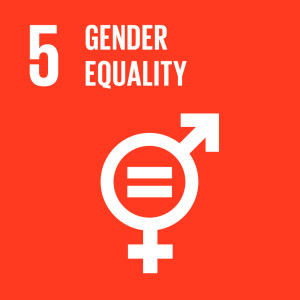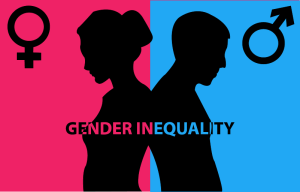How gender equal are we?
by Anastasia Cojocaru
 Gender is a socially constructed concept and, simultaneously, ontologically central to human beings. It is not a homogeneous concept, being influenced by differences in race, class, and ethnicity. However, gender differences that emerge within modern society are, in fact, differences of power. Every individual has their unique abilities that are different from those of their peers, whether they identify as male, female, non-binary, trans, queer, or anything else in between.
Gender is a socially constructed concept and, simultaneously, ontologically central to human beings. It is not a homogeneous concept, being influenced by differences in race, class, and ethnicity. However, gender differences that emerge within modern society are, in fact, differences of power. Every individual has their unique abilities that are different from those of their peers, whether they identify as male, female, non-binary, trans, queer, or anything else in between.
Women’s work needs to be more visible and be recognized because there is a whole range of economic processes alongside capitalism which have women at their core. There are many women such as Maya Angelou and Malala Yousafzai having successful careers in various fields in modern society, but women are generally still facing problems such as discrimination against them wanting to have a family when a company is promoting individuals or investing in employees’ skills and abilities.
Today’s society is built upon a gendered division of labour. There is still stigma which implies that household duties should be done by women in countries such as Japan, whereas in Finland we witness one of the most gender equal societies in the world. Even if women can nowadays work and have a career, it is still implied that they hold the subsidiary role of housewives. Why should women bear the greater burden of household responsibility or housework? When joining the workforce, women face the gender wage gap. Female workers end up being paid less for the same work that their male coworkers do, even if they have the same educational background and skills in Japan, for instance. Moreover, working for wages alone does not always bring emancipation for women. In fact, many women in developing countries such as Bangladesh or India join the workforce because they have no other alternative. 
The line between the individual’s private and public domains needs to be blurred . The work that women do in the private domain such as cooking, cleaning, and having children is hugely significant. The fact that women join paid labour nowadays, just like men do, might create an invisibility of social reproduction labour which comprises biological reproduction, unpaid reproduction e.g. housework, and reproduction of culture and ideology. There is an unquestionable need to recognize the value of women’s (invisible) work. Let’s consider a question that inevitably comes to mind. What if women would say ‘yes’ to staying at home even if they have the option to go into a job because they want to prove that their work is important? Then again, why should it be women who stay at home necessarily? What is certain is that the importance of household work should be recognized, regardless of who does it.
As long as there is someone (one or both individuals in the household) who provide(s) for the family and someone (one or both individuals in the household) who take(s) care of the running of the family household, the gender of the individuals taking on these roles should be interchangeable.